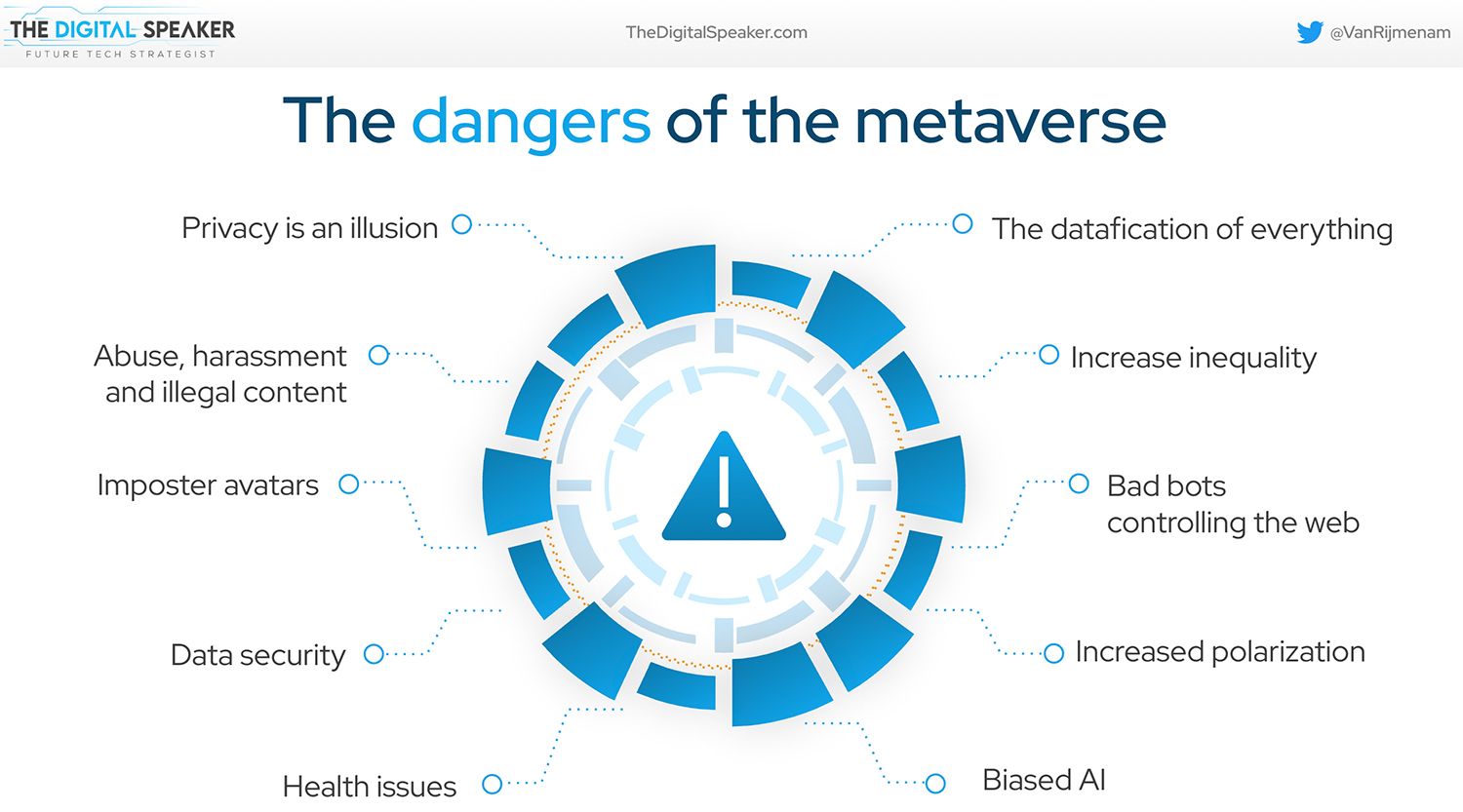Dr Mark van Rijmenam on June 11, 2022
Technology is neutral. It can bring prosperity to humanity or bring pain and destruction to society. The metaverse will not be any different. We can expect any of the crimes committed in the real world to take place, and potentially explode, on the immersive internet. After all, criminals will be active anywhere there is money to be made, and the metaverse will be an infinite blue ocean full of countless opportunities for consumers, creators, and organizations to make money.
Unfortunately, online security is challenging. Many organizations fail to protect their (customer) data correctly, resulting in numerous examples of organizations going bankrupt due to a cyber hack. At the same time, there are examples of people taking their own lives because of online harassment or cyberbullying.
Digital criminal activities are already causing havoc worldwide, but with society moving into a multi-dimensional digital experience, cybercrime is expected to grow to $10,5 trillion in 2025. That is a trillion, not a billion, and more than the GDP of Germany, France, and the United Kingdom combined and more than the entire global eCommerce or commercial real estate industry.
Unlimited data harvesting
Moreover, emerging technologies such as big data analytics and artificial intelligence, combined with the constant data harvesting thanks to the Internet of Things and social media, have created a surveillance society managed either by private companies or the state.
Add in this mix the extreme data collection from AR and VR headsets – where the amount of data to be collected, abused, and monetized is likely to be 100x compared to today – and we will soon be living in a dystopian future where our data define our freedom, for better or for worse, unless we are able to create an open metaverse.
With Web 2.0 not having a very good track record for data security and privacy, it is safe to assume that Web 3.0 will not be very different, despite distributed ledger technologies. The metaverse will enable infinite capture and control of data, identity, and wealth if it is up to Big Tech. All in the pursuit of shareholder value. If it is up to the cybercriminals, the metaverse is an infinite playground to make money.
The Challenges of the Metaverse
The challenges in the metaverse will be plentiful, ranging from unlimited data harvesting impacting our privacy, constant abuse and harassment, imposter avatars trying to steal sensitive information – for example, to steal your NFTs, widespread security breaches, biased AI, bots and trolls going rampant, and even further polarized society, increased inequality and physical and mental health issues.

If you consider the metaverse from this perspective, we should be cautious about how we wish to proceed. Unfortunately, that won’t happen as startups, organizations, individuals, and criminals will race to try to get a slice of the pie.
As a species, we have gotten very good at moving fast and breaking things but less capable at going slow and thinking first. Like the current internet has caused a flood of problems, will the metaverse be the same or solve some of the issues? Will users become addicted to an immersive world and prefer it above reality due to the constant streams of dopamine? Is it the opiate for the masses currently hooked on something far less exotic? Or is it merely fat/sugar, which we need in moderation?
We Need to Start Now
When Zuckerberg announced Meta in October 2021, he also announced that privacy and security should be built into the metaverse from day one. While it is 100% correct what he said and privacy, security, and ethics need to be central to the metaverse, Facebook defining the ethics of the metaverse sounds a lot like a wolf in sheep’s clothing, especially since Frances Haugen’s testimony in US Congress. An always-on, immersive internet can be a blessing or a curse.
Unfortunately, limiting the dangers of the metaverse will require a lot of hard work from consumers, regulators, and the companies building the metaverse. It is not a free pass, and we should not expect this to be sorted out by itself. It will require solving serious technical issues, enforcing strict regulations, and ensuring education starts early. We will be too late if we wait to build the safety measures after the metaverse is fully operational.
In my new book – Step into the Metaverse: How the Immersive Internet Will Unlock a Trillion-Dollar Social Economy – I discuss all these challenges in-depth, including three possible solutions to overcome or limit the effects of these dangers. Step into the Metaverse is available now.
Collected at: https://datafloq.com/read/what-are-dangers-metaverse/

Leave a Reply